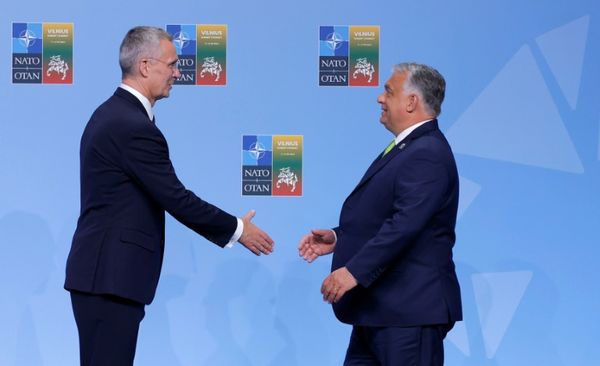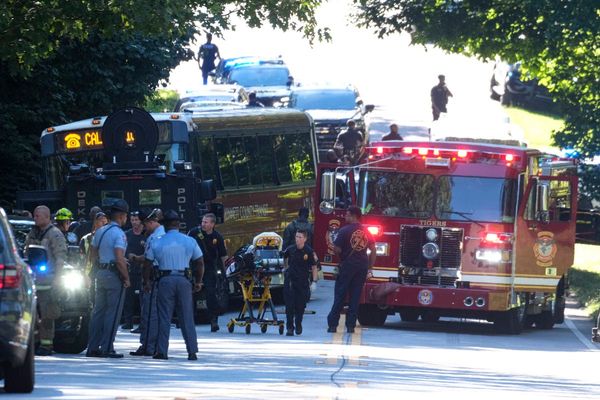
Ever since he first lumbered on to the big screen in Ishiro Honda’s 1954 original film, Godzilla has been more than just a monster. The city-crunching prehistoric mega-reptile has been cast as a metaphor for the nuclear threat, American military might and environmental abuses. He also represents a seemingly boundless franchise opportunity, having appeared in almost 40 films, of wildly varying quality. Of all these, the terrific Godzilla Minus One is one of the very best. Written and directed by Takashi Yamazaki (best known for sci-fi horror films Parasyte: Parts 1 and 2 and the comedy drama Always: Sunset on Third Street), this thunderously entertaining prequel, set in Japan in the immediate aftermath of the second world war, takes the king of monsters back to his roots.
In this version, Godzilla takes on a fresh metaphorical significance. Here, he symbolises the national anguish, trauma, guilt and grief of the country’s postwar period. His shape, with its squat rump, chunky thighs and a head that seems to be all jaws and no brains, is immediately recognisable. But this version of Godzilla looks as though he was created from the still-smouldering wreckage of Japan’s shattered cities. There are angry embers visible through the gaps between his scales; his jagged dorsal plates look like the broken spines of bombed-out buildings. He is destruction and devastation, pain and shame made flesh.
The other standard-bearer for the collective torment of the Japanese people is the film’s tortured central character. Kōichi Shikishima (Ryunosuke Kamiki) is a former kamikaze pilot. The fact that he survived the inglorious end of the war is a constant reminder of his failure. Not only did he abort his suicide mission; Kōichi froze when he was first confronted by Godzilla, in a prelude to the main body of the film. His hesitation – he fails to shoot at the creature for fear of drawing his deadly attention – indirectly costs the lives of almost the entire ground crew of an island airbase. Kōichi is trapped in the moment of his ignominy and cowardice, unable to move on with his life because “my war isn’t over yet”.
He finds himself part of a de facto family nonetheless – Noriko (Minami Hamabe), a light-fingered girl dressed in rags, moves in with him, uninvited, with an orphaned baby she rescued when the child’s mother was killed in an air raid. While Kōichi doesn’t feel worthy of marriage or love, he steps up to the responsibilities. It’s to provide for Noriko and the infant Akiko that Kōichi takes a risky but well-paid job manning the gun on a rickety wooden mine-clearing boat working the coastal waters outside Tokyo. Before long, Kōichi once again comes face to slavering jaws with his lizard nemesis. But now Godzilla, having been bathed by radiation from the first Bikini Atoll nuclear test in 1946, is an altogether more formidable creature, with the capacity to immediately regenerate from injury – and to burp out a devastating heat ray when irked.

The marine encounter with the newly beefed-up Godzilla is thrilling, but when the creature hauls itself from the water and lays waste the Ginza neighbourhood of Tokyo (where Noriko has recently taken a desk job), the film, and the monster, really hit their collective stride. Yamazaki pays tribute to several shots and scenes from the original 1954 film, most notably in a dazzling sequence that opens with Noriko gazing, uncomprehending, through the window of a suburban train as the looming bulk of the monster is reflected in the glass. Elsewhere, Akira Ifukube’s classic Godzilla theme – with its relentless, stomping rhythm, one of the most distinctive pieces of film music ever written – is deployed to glorious effect.
Godzilla Minus One is unabashedly nationalistic and sentimental in approach, pursuing a redemption narrative in which Kōichi and Japan are both offered the chance to re-enter the field of battle and regain some dignity and self-respect. It’s a testament to the quality of writing, and to the action direction, that this never feels as corny or as crass as you might expect. “The country has valued life far too cheaply,” says one character, a line that tacitly condones Koichi’s failure as a kamikaze pilot. Pointedly, it’s a civilian-led operation that faces up to the monster peril rather than a government or an army mission. The messaging, it’s fair to say, is not subtle. But then this is a movie about a furious radioactive dinosaur trashing the commercial centre of Tokyo. Who needs subtle?







